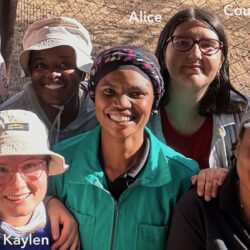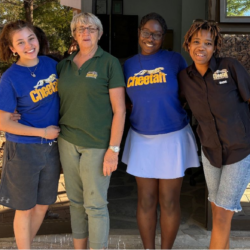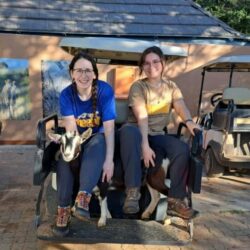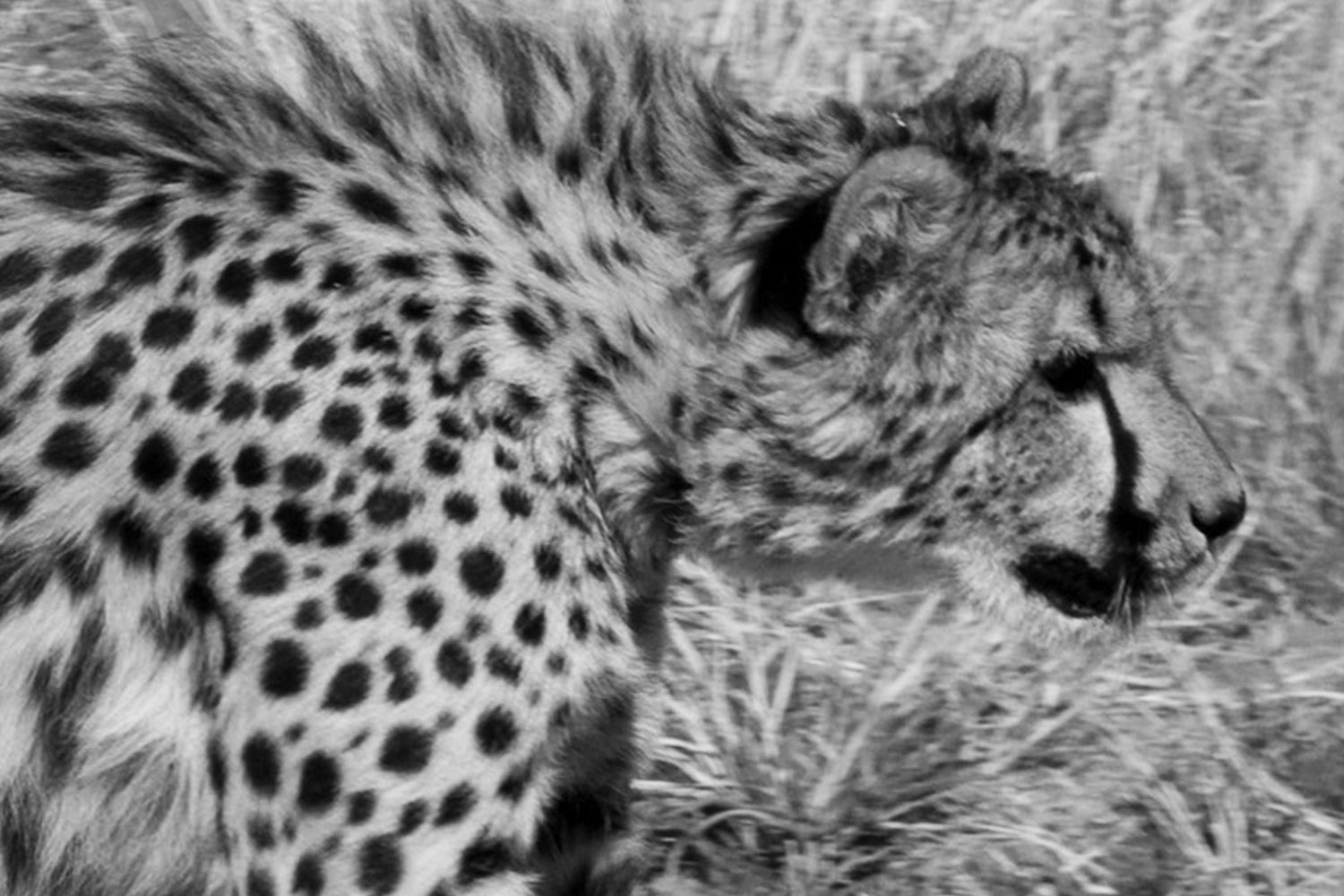Canada’s Global Vets team from the University of Guelph: Making a World of Difference
-

- by Cheetah Conservation Fund Canada July 17, 2017
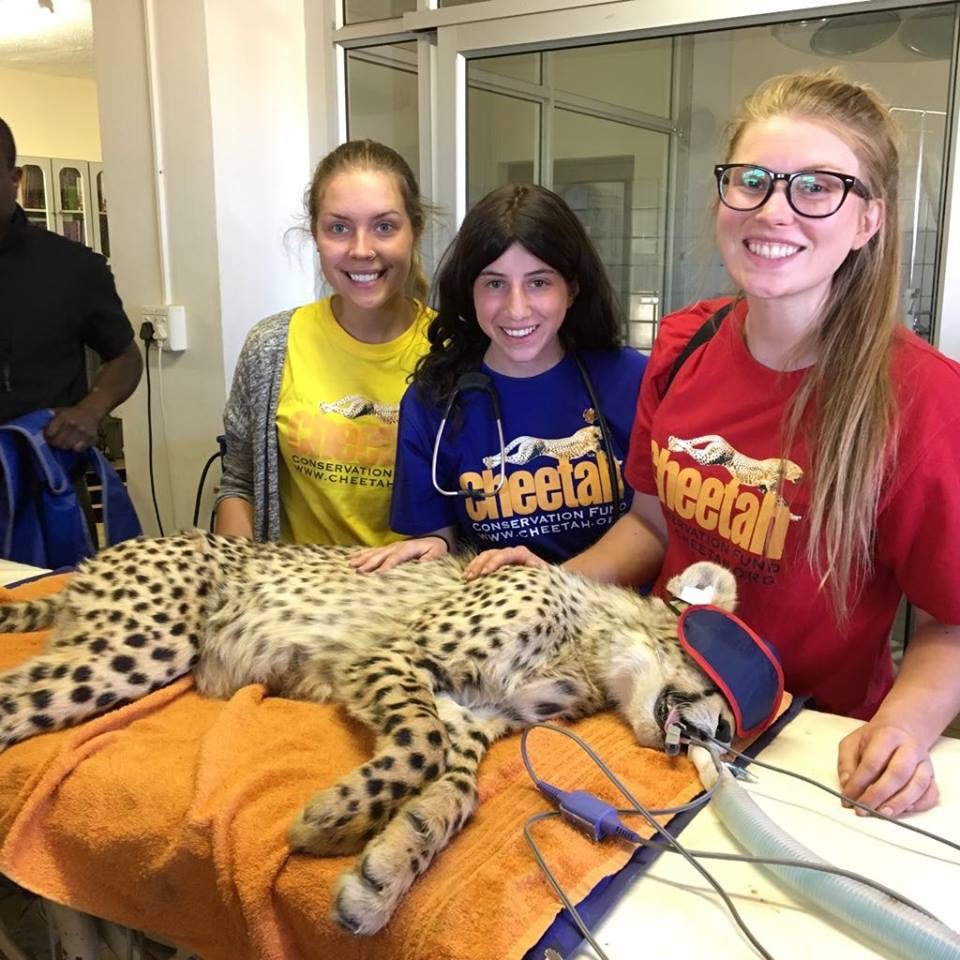
This past summer, a team of vet students from the Ontario Vet College (University of Guelph) headed off to Thailand, South Africa and Namibia for voluntary placements working directly with animals. The team, part of OVC’s student-run Global Vets program was at Cheetah Conservation Fund Namibia for two-week placements during July and August.
We caught up with them, earlier this fall, as they are all immersed in the third year of their academic program. Their experiences in each of the placements was very rewarding and a wonderful opportunity to work with animals and people in locales very different from Canada. These young women each spent two weeks at CCF and were fully engaged in all the veterinary and animal care work that CCF does with cheetah, dogs and puppies, and the goats, too.
Our conversation centred around what they learned from their overall experience and how they thought they could use the experiences in their continuing studies, as well as their careers in veterinary medicine.
What were your biggest learnings as a Canadian about how developing countries are helping animals?
We repeatedly observed that people are very resourceful in each of the placements. They are creative with limited resources, including personnel and equipment, as well as medical treatments. The staff in each of the placements was very passionate about their work, and we found a lot of commonalities with them. Stereotypes fell away pretty fast!
We also saw that people work together, sharing resources, and that helping animals and the people who care about them can be a community effort.
Tell us about your placement at CCF and how you can apply your experiences to your continuing veterinary training.
Our time at CCF was really rewarding. Two of us were at CCF Centre in July and then three of us followed for two weeks in August. So, we had some different experiences, but all of us felt we really hit the ground running. And the chance to work with the cheetahs, the dogs and the livestock, even in the same day, and on many aspects of their veterinary care, gave us really good exposure to the range of challenges for wildlife veterinarians.
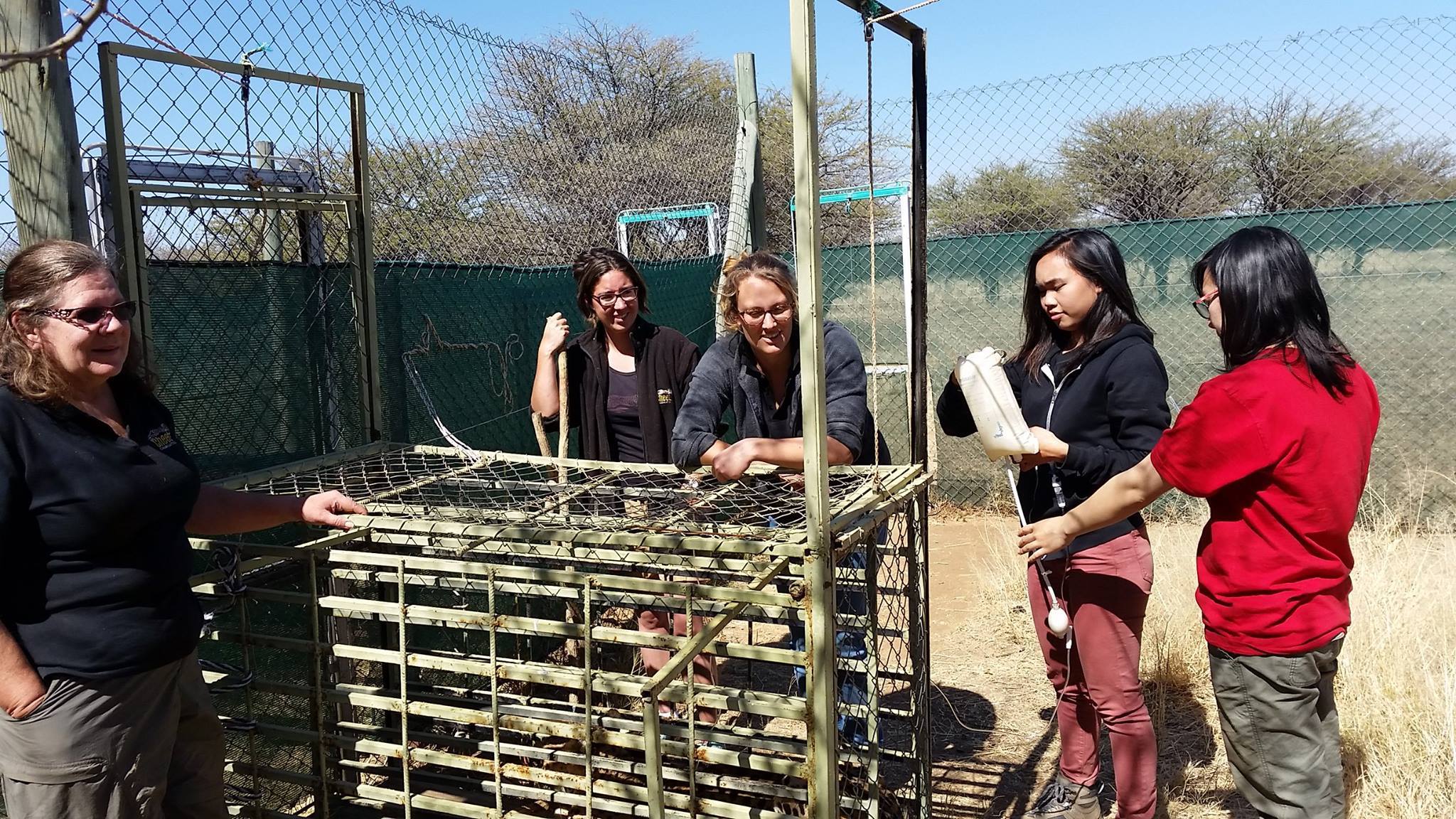
The two lead vets at CCF were very open to teaching, and they made us feel very comfortable. Very soon after we arrived, we got involved in doing work-ups on the animals, including the cheetahs, which was an amazing experience.
Under the guidance of the vets, we had the chance to work directly with some of the cheetahs, either in the clinic during some dental work, or being part of the team that was monitoring the renal health of one of the cheetahs under CCF’s ongoing care.
We also realized how much the staff in the vet program at CCF work with local people, and how varied the needs can be. In the case of the dogs, all of which are working animals and client-owned, it was a great reminder that when you are helping animals, you are also really helping people. An important past of what CCF does is to monitor the health and success of the guarding dogs that they give to local farmers, and we could see how important it is to build these relationships with the farmers.
How did the experience at CCF change how you think about veterinary work and animals?
The work at CCF is holistic; the work of the vet clinic is really tied into the overall cheetah care program and the livestock guarding program and the ecology programs at CCF and more. So, we had the chance to learn about the scat dog program, how CCF is working with farmers and their communities and how important it is to really know how the cheetah plays a key role in the ecosystem. We saw other wildlife, and how the CCF team monitors and protects the wildlife to ensure healthy ecosystems. So for each of us, seeing the animals in their natural environments and the efforts to ensure that they are as healthy as possible helped us see how important it is for humans and wildlife to live in harmony.
We all agreed that the experiences of working with different animals – especially ones that we would not encounter in Canada – gives us a whole other dimension of knowledge about animals. At the same time, the five of us have gained a better understanding that while we are very fortunate in Canada and in our own educational opportunities, vets and vet students in the developing countries that we visited have the same aims, and they are not very far behind us. So, no matter where we were, the quality of care didn’t diminish even if the physical resources were not as plentiful.
Can you describe the impact on you from your Global Vets experience?
The work at CCF is holistic; the vet clinic is really tied into every aspect, including the overall cheetah care, livestock guarding, and the ecology programs at CCF, and even extends beyond into the surrounding community. We had the chance to learn about how CCF is working with the farmers in their local communities, the scat dog training program, and how important the role is that the cheetah plays in the ecosystem. We saw other native wildlife on site as well, and marveled at how the CCF team monitors and protects them to ensure the health and biodiversity of the Namibian ecosystem. So for each of us, seeing the animals in their natural environments and the efforts to ensure that they are as healthy as possible helped us see how important it is for humans and wildlife to live in harmony.
We all agreed that the experiences of working with different animals – especially ones that we would not encounter in Canada – gives us a whole other dimension of knowledge about animals. At the same time, the five of us have gained a better understanding that while we are very fortunate in Canada and in our own educational opportunities, vets and vet students in the developing countries that we visited have the same aims, and they are not very far behind us. So, no matter where we were, the quality of care didn’t diminish even if the physical resources were not as plentiful.
For more information about CCF student internship program please click here.
Related Reading
-
June 12, 2024
Our journey at CCF: Conservation and Collaboration -
May 28, 2024
Vet Techs at CCF
